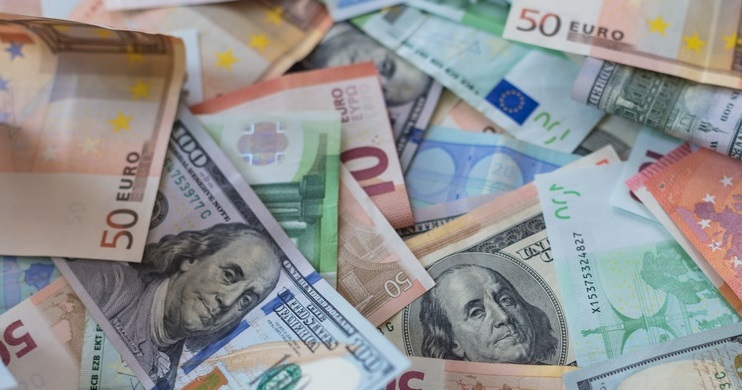
The last five years have been a test phase for bitcoin derivatives, which began tentatively when Bitmex eased into life in 2014. Now, as the cryptoconomy prepares to enter a new decade, derivatives products will play a pivotal role in price discovery. 2020 will be a big year for bitcoin and for the futures markets where billions of dollars will be won and lost, and the next bull market will begin.
Also read: South Korea Imposes $69M Tax Obligation on Crypto Exchange Bithumb
A Year of Bitcoin Derivatives Is Dawning
In 2019, crypto futures volumes approached those of spot trading. In 2020, futures are on course to blow right past spot levels and keep on trucking. The success of derivatives platforms Binance Futures and Bitmex, as well as new products from the likes of FTX, Dydx, and Synthetix, has convinced many that 2020 could be the Year of Derivatives. And U.S. regulators are lending credence to the notion: Commodities and Futures Trading Commission (CFTC), the independent regulator that governs the country’s futures and options markets, recently hinted that it could approve a new crypto-based derivative product backed by Ethereum in the course of 2020.
Out-of-the-box products serve to attract new players and new capital to the crypto derivatives market. But will the spate of novel products capture sufficient volume and play a role in shaping bitcoin’s price action in the coming year? And if so, who stands to benefit most?

A Flurry of Derivatives Developments
Singapore exchange Bybit is planning to move into Thai, Turkish, Vietnamese and Spanish markets, Okex’s new USDT-margined Perpetual Swap Trading is likely to gain traction, and decentralized derivatives products are expected to see broader usage as defi adoption continues. Synthetix – the second largest defi app in the Ethereum ecosystem – has just announced a partnership with Chainlink, meaning it no longer needs to rely on centralized price feeds for its derivatives trading mechanism.
Today’s traders are now spoilt for choice, with bitcoin futures trading platforms feeding their appetite for high leverage on an array of digital assets. Traders aren’t limited to BTC and ETH, either: they can long or short altcoins such as cardano, enjin, tomo, and stellar if they’re feeling bold. Improved fiat-crypto gateways, such as Plutus’ virtual bank account and debit card, have also increased the appeal of derivatives exchanges to retail investors, who are no longer locked into tether (USDT). Enhanced crypto-fiat conversion means traders can spend or reinvest their profits without needing to jump through multiple hoops.

US Futures Markets Heat Up
In terms of institutional interest in bitcoin futures, the U.S., where much of the innovation is happening, will dictate matters. One platform seeking to play a major role is Bakkt, which launched bitcoin options and cash-settled futures in the U.S. at the tail-end of 2019. While the former is the first regulated bitcoin futures contract rubber-stamped by the CFTC, the latter will initially be available via the ICE Futures Singapore exchange. In December, open interest on Bakkt bitcoin futures reached an all-time high of $6.5 million – and with the ascension of CEO Kelly Loeffler to the U.S. Senate, the next 12 months are shaping up to be interesting.

Bakkt isn’t the only platform contributing to a market that has evolved greatly since traders first sought to profit from falling prices during the 2018 downturn. Binance’s bitcoin derivatives surpassed the volumes of its spot offering at various times in 2019, leading the juggernaut to invest an undisclosed sum in derivatives platform FTX. This after it had already acquired spot and derivatives exchange JEX, a move which enabled Binance to add options and futures to its platform.
Speaking of bitcoin derivatives, CME Group’s Tim McCourt recently celebrated the two-year anniversary of the exchange’s operations in this field. In a short article noting the market’s “forward curve,” he revealed that CME had traded over 2.4 million contracts with a notional value exceeding $92 billion from 12.5 million BTC. Some speculate that the growing interest of trading exchanges like Bakkt and CME stems from reduced BTC volatility in comparison to previous years. In any case, the preponderance of such platforms gives derivatives traders plenty of options.

Competition Is Getting Fierce
As derivatives players vie for market share, battlegrounds are coming into clearer focus. Blade, the San Francisco-based exchange supported by Silicon Valley venture capitalists, just announced its commitment to zero-fee trading – a flagrant affront to perpetual swap titan Bitmex. UMA’s Bitdex specification also presents a possible route to non-custodial perpetual swaps, though more work is required to develop this concept.
So what does all this surging activity mean for bitcoin’s price? According to Meltem Demirors, chief strategy officer of Coinshares, the growth of the crypto derivatives market means that bitcoin’s price is becoming less relevant – which will keep it in check even after the halving. Demirors believes that bitcoin’s evolution into an investable asset will, in effect, decouple its price from both its value and supply and demand. With the crypto derivatives market coming to wider attention, a greater number of investors may also choose to hedge their positions via derivatives to manage price risk, leading to less volatility.

All told, the bitcoin derivatives market looks to be in rude health, even if it remains small when compared to other commodities markets. For one thing, traditional investors are likely to be enticed into crypto as a consequence of their familiarity, since derivatives are routinely used in regular financial markets. In fact, a great many institutional traders have thus far been reluctant to engage with crypto due to a paucity of tools to hedge trades and manage risk. 2020, then, and the decade it heads should bring greater leverage for crypto derivatives, including those in the defi ecosystem, greater liquidity, and greater competition from players old and new.
Do you think derivatives markets will dictate bitcoin’s price action in 2020? Let us know in the comments section below.
Images courtesy of Shutterstock.
Did you know you can verify any unconfirmed Bitcoin transaction with our Bitcoin Block Explorer tool? Simply complete a Bitcoin address search to view it on the blockchain. Plus, visit our Bitcoin Charts to see what’s happening in the industry.
The post Bitcoin’s Next Decade Will Be Shaped by Derivatives appeared first on Bitcoin News.
from Bitcoin News https://ift.tt/39mNMdP
Comments
Post a Comment